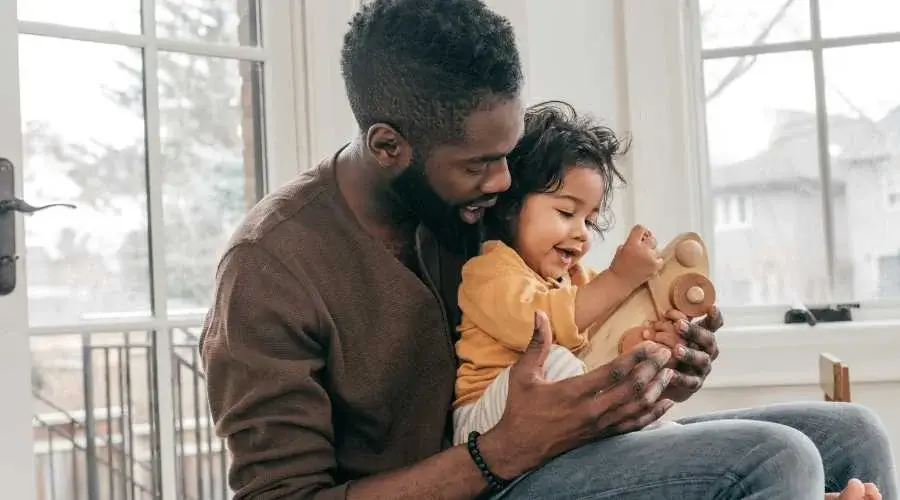Navigating child visitation in Paducah requires understanding legal standards and implementing effective co-parenting strategies to ensure the well-being of your children
Key Takeaways
- Paducah courts prioritize the “best interests of the child” when determining custody and visitation, focusing on factors like each parent’s ability to provide necessities, ensure safety, and maintain stability.
- Effective co-parenting strategies include prioritizing children’s needs, fostering positive relationships with parents, and maintaining open communication to create a harmonious environment.
- Legal avenues such as mediation and court interventions are available to resolve custody and visitation disputes, with mediation often being the preferred initial approach.
Understanding Paducah’s “Best Interests of the Child” Standard
In Paducah, courts apply the “best interests of the child” standard to determine custody and visitation arrangements. This approach prioritizes the child’s needs over parental preferences, evaluating several key factors:
- Ability to Provide Care and Necessities: Courts assess each parent’s capacity to offer time, love, education, food, clothing, medical care, and other essentials. They consider the parent’s dedication, historical involvement in caregiving, and availability post-divorce.
- Child Safety: While reasonable physical discipline may be accepted, a history of physical abuse significantly impacts custody decisions. Additionally, courts may favour non-smoking households, recognizing the health risks associated with secondhand smoke.
- Stability and Continuity: Maintaining the child’s residence with the same parent in the same home is often preferred to minimise disruption from divorce. Similarly, courts typically avoid separating siblings to preserve familial bonds.
- Child’s Preferences: Older children’s reasonable preferences may be considered, especially if they pertain to maintaining friendships, staying in the same school, or continuing participation in extracurricular activities.
- Cooperative Parenting: Courts favour parents who facilitate the child’s relationship with the other parent. A parent unwilling to support dual parenting may face challenges in obtaining increased visitation or custody.
Effective Strategies for Successful Child Visitation
To foster a positive co-parenting environment and ensure successful visitation, consider the following strategies:
- Prioritize Settlement Over Litigation: Custody disputes can be costly and emotionally taxing for children. Strive for amicable agreements, compromising when necessary to avoid prolonged conflict.
- Focus on Children’s Needs: Center decisions around what’s best for your children. Aim to minimize disruptive transitions between homes, even if it means adjusting your schedule.
- Encourage Involvement from Both Parents: Children benefit from relationships with both parents. Develop a schedule that allows meaningful time with each parent, reinforcing stability and support.
- Refrain from Negative Remarks: Avoid criticizing your ex-spouse in front of your children. Encourage open communication and respect their relationship with the other parent.
- Facilitate Smooth Transitions: Maintain a positive demeanor during custody exchanges. Avoid conflicts in front of the children, as negative interactions can cause them distress.
- Start with Common Ground: Begin negotiations on visitation and custody with areas of agreement. Establishing consensus on more straightforward issues can pave the way for resolving more complex matters.
- Remain Flexible and Open-Minded: Life changes may necessitate adjustments to visitation arrangements. Approach these situations flexibly, always keeping your children’s best interests at the forefront.
Legal Processes: Mediation and Court Intervention
Resolving custody and visitation disputes often starts with court-ordered mediation. Mediation provides a confidential setting for parents to reach agreements collaboratively. If mediation fails or in family violence cases, the court will intervene to determine appropriate arrangements.
Frequently Asked Questions
Q: How do courts determine the child’s ” best interests”?
A: Courts evaluate each parent’s ability to provide for the child’s needs, ensure safety, maintain stability, consider the child’s preferences, and support a relationship with the other parent.
Q: What if my ex-spouse refuses to cooperate in co-parenting?
A: Courts favour parents who encourage a relationship between the child and the other parent. If one parent is uncooperative, it may impact custody and visitation decisions. Mediation or legal counsel can assist in resolving such issues.
Q: Can my child’s preference influence custody arrangements?
A: Yes, especially for older children. If the child’s preferences are reasonable and align with their best interests, courts may consider them in custody and visitation decisions.
Q: How can I modify an existing visitation schedule?
A: To modify a visitation schedule, you can file a motion with the court demonstrating a significant change in circumstances that warrants the adjustment. It’s advisable to consult with a family law attorney to navigate this process.
Q: What steps can I take if I believe my child’s safety is at risk during visitation?
A: If you have concerns about your child’s safety during visitation, you can request supervised visitation or a modification of the custody arrangement through the court. Providing evidence to support your concerns is crucial.
Conclusion
Successfully navigating child visitation in Paducah involves understanding legal standards and implementing effective co-parenting strategies. By focusing on your children’s best interests and fostering a cooperative parenting environment, you can create a positive and supportive experience for your family.






